11 Ways to Use Your Phone as The Ultimate Travel Tool
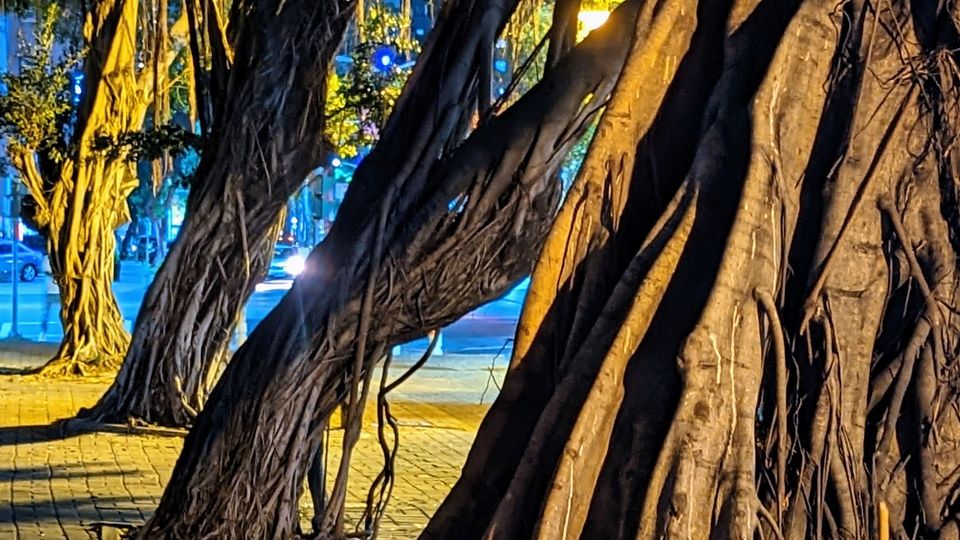
Modern cell phones hold so much power. Gone are the days when people used to say we wouldn’t always have access to a calendar, dictionary, map, etc. We have almost the entire knowledge of the human race at our fingertips (Yet, we choose to watch memes of cats). Essentially, we are cyborgs with these items that are as close to being implanted in us, without the intrusiveness.
Cell phones are an incredibly powerful tool. You have a camera, a means to communicate, a calculator, a journal, and so many more in one small package. If you embrace all the things you can do with this item, you're sure to cut back on your possessions. You can also gain more freedom by incorporating the increased capabilities of these devices vs their physical counterparts.
In this post, we'll look at some of the best uses of cell phones we have and how they can help a minimalist in their endeavours to do more with less. This isn’t meant to dissuade someone from completely giving in to the controlling little devices that have become almost synonymous with pockets and hands.
Some of these topics aren’t black and white and there could still be a need for a physical variant, or even a desire to do things the old ways! I’d also like to note the importance of having a healthy relationship with technology and screens. There is a chance for this technology to have a negative impact if not kept in check, so keep that in mind. Perhaps digital minimalism might be more your speed.
Table of Contents
Communication
Reading
Music
Movies
Podcasts
Travel Companion
To-do List
Journal
Notebook
Banking
Camera
Conclusion
Communication
Another massive aspect of cell phones is how we can communicate. Of course, physical mail has been on its way out for a very long time. A large portion of what keeps the mail systems alive is spam/ junk mail. In modern times, phones can reply to professional emails, use company chat messengers, and apps to run a lot of the aspects of someone’s business. All this power in your hands allows you to cut back on the time needed to be tied to a laptop. Or better yet, a physical office. We can communicate and collaborate from anywhere in the world. So, why should someone waste so much time commuting when that time could be spent on something more valuable?
I’ve almost entirely been able to communicate from my phone. While I was in my last job, we were able to access our Slack channels through our personal devices. And even when selling my house, I was able to respond to my real estate agents emails and sign electronic documents to close the deal all through my phone. Being able to communicate through my phone allows me to get more work done in the small moments. I can read an email while walking to a coffee shop, and respond to it while waiting for a coffee. When I can maximize my productivity by being able to communicate from anywhere, I'm able to get more done thus leading to more free time later on.
Reading
While there are still those who hold on to the love of the “new book smell”, and those who have transitioned to e-readers, phones are an incredible alternative to books. They allow you to hold so much more content than the other mediums. Perhaps as a minimalist, you might not want to accumulate physical books that often don’t get touched after being read. If that’s what you’re aiming for, then a phone is the way to go. There exist many ways to consume books, like free apps through your public library, apps where you can buy digital books, and even some less legal ways to add to your library.
I’ve tried all of these options, and I enjoy having books on my phone the most. Since my main residence is in a van, I don’t have a large amount of space for a library. I keep some physical books around still, like those I’ve borrowed (and tried to refuse, but took out of politeness), or reference books that are important to have a physical copy of, like The Freedom of the Hills, or other outdoor activity guide books. Using my phone to read allows me to open it up almost anywhere I’m waiting and sneak in a few pages on the subway, or between sets at the gym!
Music
Gone are the days of tape decks, and CD players. Most vehicles now don’t come with a way to play physical media and music. We’ve gone so digital in this regard. This is great for those who want to have large collections of music and playlists ready for any occasion.
I’ve gone through phases where I felt having the physical CD was a good way to support an artist and collect something I enjoyed. Over time, and from moving so much and occasionally scratching some discs, I moved away from this practice. I’m happier now having access to a larger collection of music digitally.
Movies
Physical movies, much like physical music have gone the way of the dodo. It’s so much more convenient to use Netflix, Disney, etc. than tote around DVDs. Unfortunately, there's a reason why most Blockbusters are no longer around. Except for that one in Bend, OR. As with most of the other media, there are so many alternatives available that it can be overwhelming. For example, when you sit down after work and want to relax to watch a movie, but can’t decide and spend 30 minutes scrolling through to find something you will probably fall asleep anyways. Using your phone for watching movies allows you to watch your favourite show no matter where you are. Even when you’re backpacking on a multi-night trek!
While I prefer to watch movies on a laptop at the very least, I have been known to watch a full series on my phone while out of cell service in the woods. It’s extremely powerful being able to download movies for offline use to watch during a low-tech flight, or in a tent at night. Can you imagine how inconvenient it was to bring a DVD player camping with you? Not to mention the power source required to run it!
Podcasts
Podcasts have become an incredibly popular way to listen to people's thoughts and stories. From the origins of interviews to the more recently popular format built around telling immersive stories, having access to these on your phone has been a great addition to media. Podcasts give you exposure to so much information. Yes, there are even podcasts about minimalism.
There are a few interesting podcast hosts who I keep going back to. I’ve listened to them for so long that I almost feel like I know them and can laugh along with them. I’ve listened to a series where people played DND, I’ve listened to horror stories and a lot of informational interviews with famous people. Having access to this much information and entertainment makes phones great to bring along.
Travel Companion
Remember when you used to print out directions from mapquest? Or, have a road atlas for other reasons than nostalgic drawings? Maybe you don’t, but I do. I’m not that old. Today, we have so many ways to navigate in the palms of our hands. Phones provide a great step in evolution after maps and GPS. Some of the available navigation apps speak to us so we don’t even need to look away from the road. Having access to maps and GPS on a phone makes a minimalist not have to own physical maps for road trips, or even hiking.
Being able to speak with anyone by communicating through a digital communicator is incredible. With phones, we can translate not only text that we input, but also text from a picture, and even full-on conversations. Phones also replace the need for travel guidebooks. The internet had that solution for a long time, but now we can access it whenever we need new inspiration for places to see!
As a minimalist, I’ve used my phone for a lot of different navigation tasks. It lets me know how long it takes to get somewhere, how to take the train around town, how long I have left on my hike, and even the right route to take for a multi-night skiing hut trip. Access to this on my phone means I don’t have to carry more things than required. It also allows me to make use of powerful AI that will better guide my trip in a more efficient way than I ever could.
I probably wouldn’t have been as comfortable in my travels if it wasn’t for my ability to translate on the go. I could also instantly acquire any information I wanted at a particular destination I was in. I loved being able to google what famous sights I was around when I got off a train.
To-do List
Being able to use to-do lists on one's phone is incredibly powerful. Sticky notes and pieces of paper are a messy medium for this chore. Transitioning to using a digital list is significantly more efficient. Apps like Todoist offer a sort of to-do list on steroids. While apps like Notion allow one to build a system however they want to (even to create a second brain of sorts). Lately, there has been a big resurgence of the physical version of these tools, so there might be some who refuse to transition. Having one true source of information all in one small package that doesn’t run out of ink can be a lot more convenient.
My task lists are so important to my daily functioning. I couldn’t imagine needing to organize multiple mediums to accomplish what I can do in one or two apps (that can likely sync and share information). It seems so inefficient to do it any other way once you've experienced it. I see some people struggle to stay on top of these things with their physical lists that they lose, forget, and don't update regularly enough. For me, the ease of having all of it accessible in a concise format is the type of thing I strive to have. It enables me to offload those thoughts into my systems, and focus on other things like enjoyment, or memes, or horror movies.
Journal
Similar to to-do lists, there are plenty of apps that allow you to journal. They come in many shapes and sizes that offer flexibility and creativity as opposed to just writing a note in Google Keep. The added benefit of journalling digitally is that you don’t need a new book whenever you’ve filled one up. You also have the ability to search, edit, and organize your entries. Some apps are capable of capturing metadata and showing you cool metrics like how your mood relates to your productivity, or how badly you've slept if you were scrolling social media late into the night.
I’ve kept physical journals in the past. From journals like "The 5-minute journal", to sleep logs. They’re fine, but they’re cumbersome.
Notebook
While taking notes is often done better on a laptop (as most university students do today), it is possible to do this on a phone. Not having to carry around the weight of notebooks is great. making small notes is easier too. Your phone can be set up to do it with a few clicks. Apps like notion can be set up in a way to capture all of the new information from meetings, classes, lectures, and even podcasts if you’re hardcore enough to take notes on them.
I transitioned to electronic notes a while ago, and I’m happy I did. When I feel I need to learn as I take notes, I will opt for some form of electronic pen and tablet combination. This allows me to take advantage of being able to synthesize the information as I take the time to physically write it. As for everyday notes and reminders, if I feel my task list can't capture them then I’ll add them to some convenient app on my phone like Google Keep. I feel like there’s some crossover between minimalism and productivity and using a phone for notes is a perfect example of this.
Banking
Like DVDs and VHS, we’re starting to move beyond the use of physical bank cards and cash. Phones have now given us the ability to use them as contactless payment options. Being able to leave the house with just your id and phone allows you to carry less with you when you're heading out for groceries or going out for dinner. Apps like Google Wallet not only let you use your bank cards, but they also allow you to store concert tickets, boarding passes, and vaccine passports.
Initially, I was a bit hesitant to use NFC as my payment method. After some time, the technology became more widespread and safe, so I made the switch. I love the convenience of not fumbling through my already minimalistic wallet to get my card out to tap it, then put it back.
Camera
Having a camera with a phone wasn't always a thing. What a wonderful addition! Think of all the ads with photos of beautiful landscapes that said: "Shot on iPhone”. Phone cameras are becoming incredibly powerful. They can produce some images that rival professional cameras. Some people even use them for V-logging purposes too!
I’ve never been much of a photographer. I used to have what my friends called a potato phone that took very bad pictures. As I’ve travelled more and more, I’ve become more interested in capturing quality photos of the beautiful places I've been to. I'm very grateful for the ability to capture a view I loved and remember it for as long as the inevitable heat death doesn't destroy our digital records. Having a camera built into my phone also means I spend a bit less on some other hobbies like photography.
Conclusion
Now that you've learned about how powerful of a travel companion your phone is, you can set off with the confidence that you'll remain organized, entertained, and ready for whatever challenges travel throws your way!
Leave a comment below to share how you use your phone when travelling!

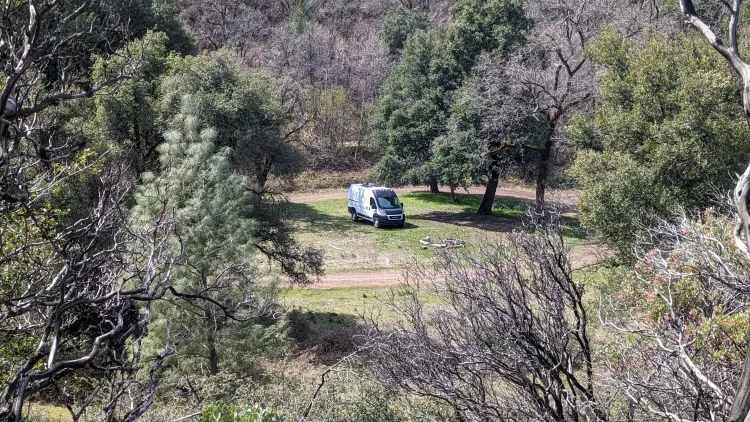
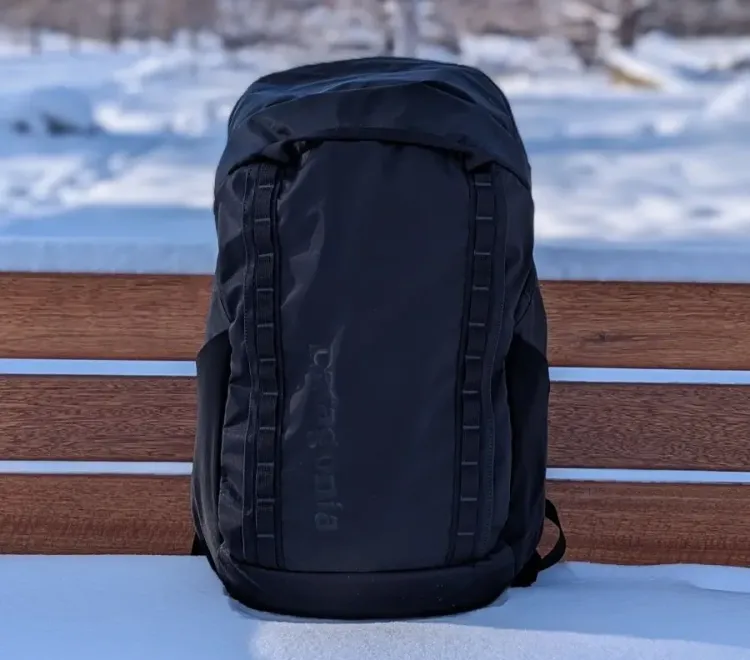
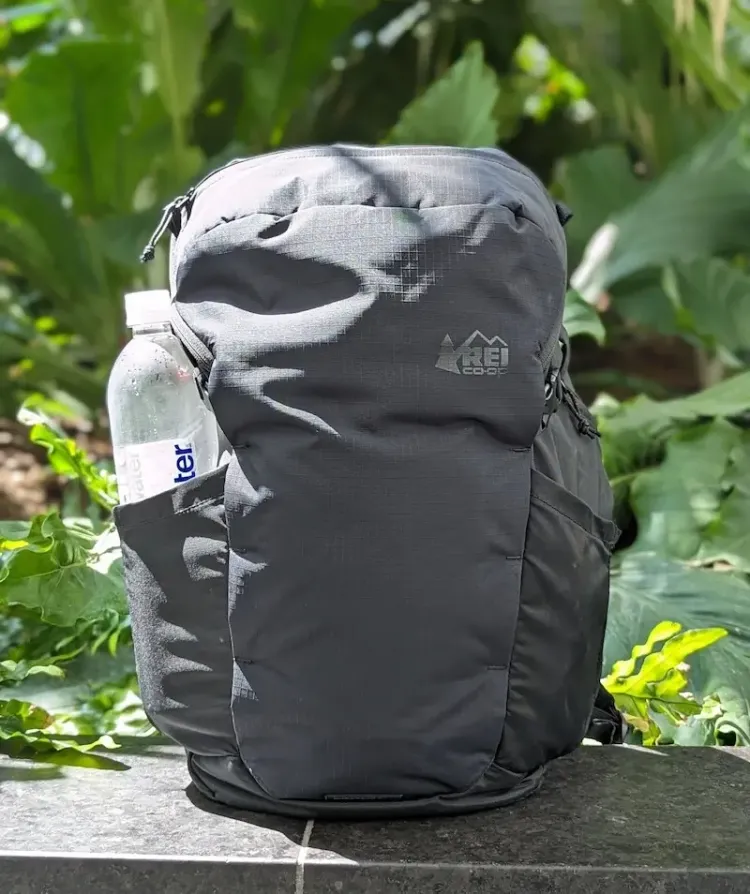
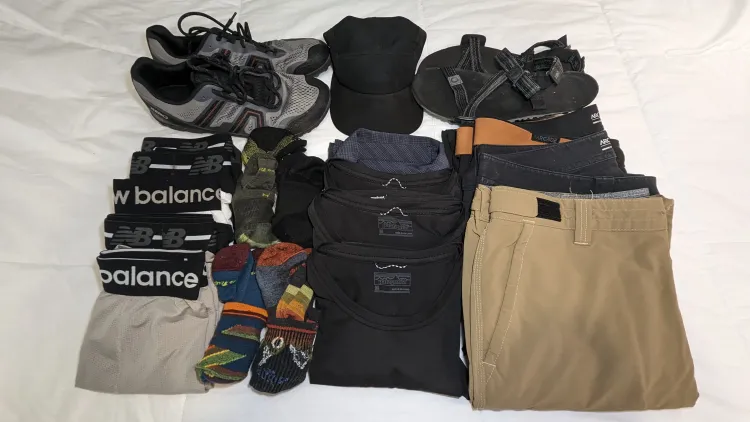

Member discussion